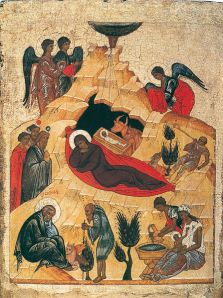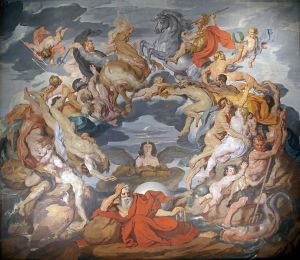The wicked man is a punishment to himself, but the upright man is a grace to himself—and to either, whether good or bad, the reward of his deeds is paid in his own person.
~ St. Ambrose of Milan, De Officiis 1.12
This perspective of St. Ambrose of Milan is one that is quite common among ancient Christians. In some sense they also expect a coming, final judgment, of course, but I am not clear that such was any different than the natural consequences of our actions now, simply taken to their logical ends. In any case, many today, perhaps, could benefit from reconsidering their concepts of sin, merit, reward, and punishment from this more anthropological perspective of St. Ambrose. Continue reading


